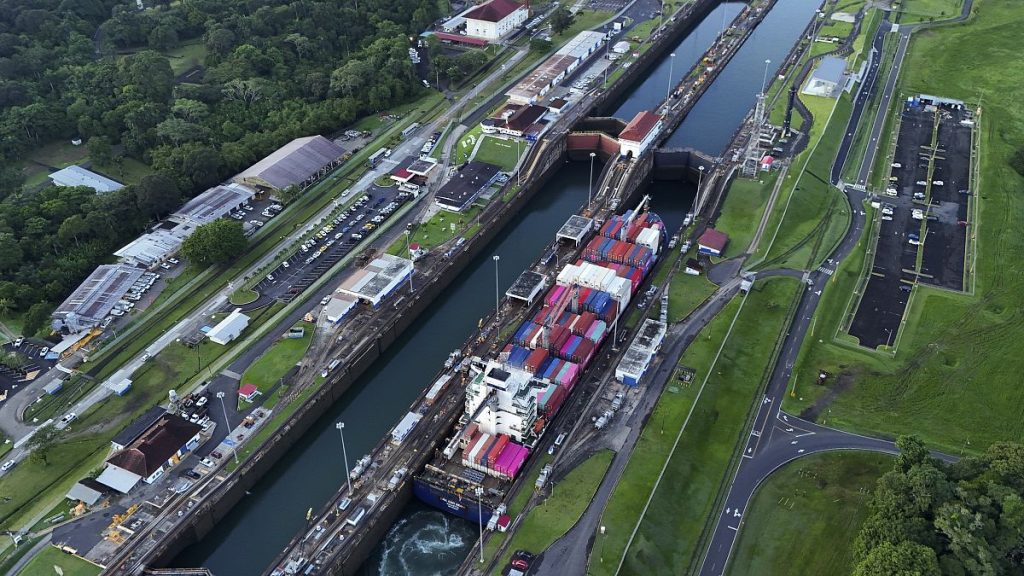The Panama Canal, a crucial maritime passage linking the Atlantic and Pacific Oceans, has become a point of contention between the United States and Panama. Former US President Donald Trump, during his post-election rally in Arizona, expressed his discontent with the canal’s toll fees, deeming them “ridiculous” and “highly unfair” to US Navy and commerce. He argued that Panama’s treatment of the US is unjust, considering the “extraordinary generosity” bestowed upon the nation. Trump asserted that the US has a significant vested interest in the canal’s secure and efficient operation, and vowed to halt what he perceived as a “complete rip-off” upon assuming the presidency. He even hinted at the possibility of the canal’s return to US control, though without specifying how such a drastic measure would be achieved. This contentious statement reignited historical tensions surrounding the canal’s ownership and control.
The Panama Canal’s history is intertwined with US involvement. The US initially gained control of the canal zone in 1903 through a treaty with Panama, which had recently declared independence from Colombia. The US completed the canal’s construction in 1914, significantly impacting global trade and maritime routes. However, the canal’s US control became a source of friction with Panama, which viewed it as an infringement on its sovereignty. After years of negotiations, the US and Panama signed the Torrijos-Carter Treaties in 1977, paving the way for the canal’s transfer to Panamanian control. The transfer was finalized on December 31, 1999, marking a significant milestone in Panama’s history.
The Panama Canal plays a vital role in Panama’s economy, contributing approximately one-fifth of the government’s annual revenue. The canal’s operation relies heavily on reservoirs to function its lock system, making it vulnerable to droughts and climate change. In 2023, Central America experienced severe droughts, forcing the canal authorities to significantly reduce the number of daily transit slots for ships. This reduction, coupled with the increased operational costs due to the drought, led to a rise in transit fees for all shippers. While weather conditions normalized towards the end of 2023, allowing for a return to regular transit levels, the impact of the drought and the increased fees continue to be felt.
Trump’s remarks about potentially reclaiming the Panama Canal were met with strong opposition from Panama’s President José Raúl Mulino. Mulino unequivocally asserted Panama’s sovereignty over the canal and its surrounding areas, declaring that the country’s independence is non-negotiable. This firm stance underscores the sensitivity surrounding the canal’s ownership and control, a historical point of contention between the two nations. The canal’s importance to Panama’s economy and national identity makes any discussion of relinquishing control a highly sensitive issue.
Trump’s comments on the Panama Canal were made during his first major rally following his presidential election victory. He used the platform to address a large audience of conservative supporters, outlining his administration’s goals and priorities. These included promoting economic growth, securing US borders, and resolving conflicts in the Middle East and Ukraine. Trump projected an optimistic outlook, proclaiming the arrival of a “Golden Age” for America and emphasizing a renewed national spirit. His address aimed to reassure his base and set the tone for his upcoming presidency.
The dispute over the Panama Canal highlights the complex relationship between the US and Panama. While the two countries share historical ties and economic interests, the canal’s ownership and management remain a sensitive issue. Trump’s remarks, though lacking concrete details on how the US might regain control, touched upon a raw nerve in Panama, underscoring the importance of respecting national sovereignty and engaging in constructive dialogue to address shared concerns related to the canal’s operation and future. The canal’s strategic importance to global trade and its vulnerability to climate change necessitate continued cooperation and understanding between the two nations.














